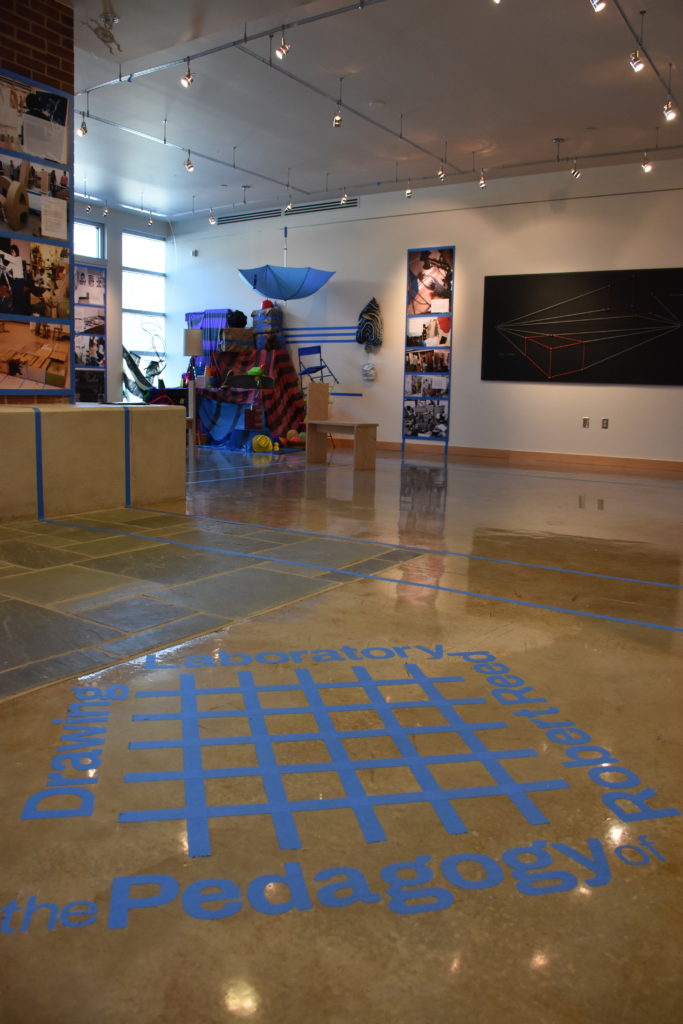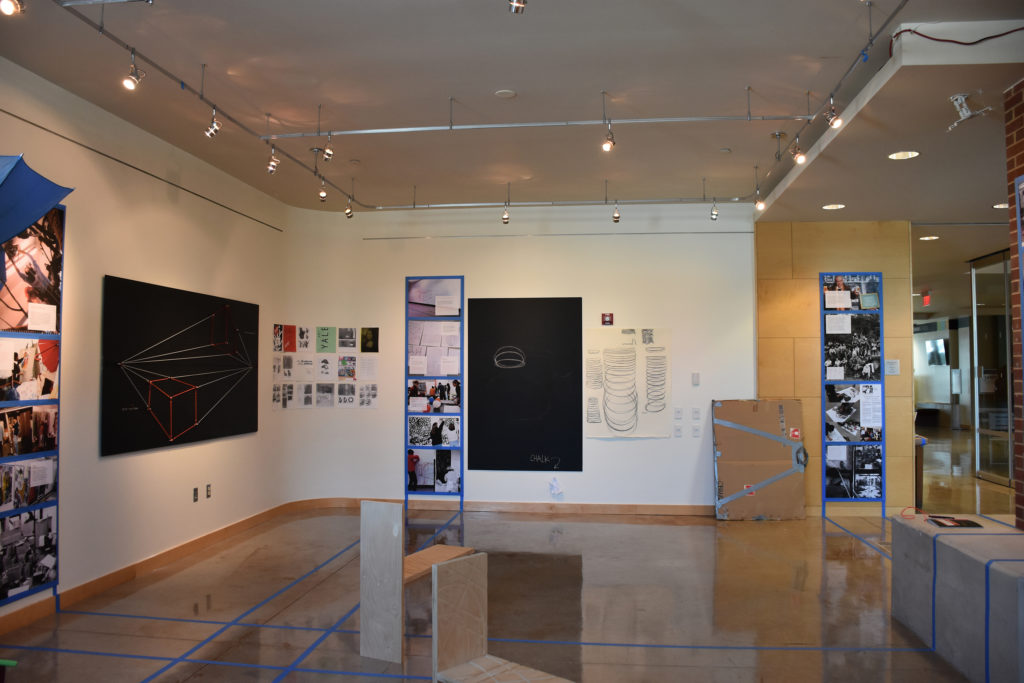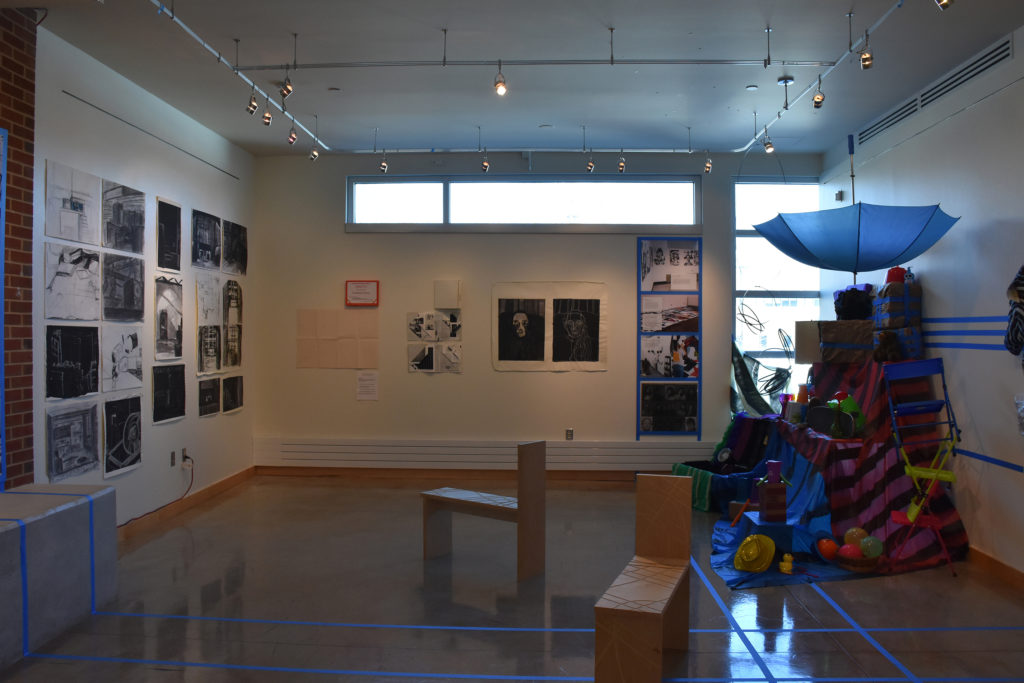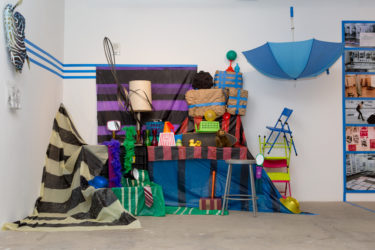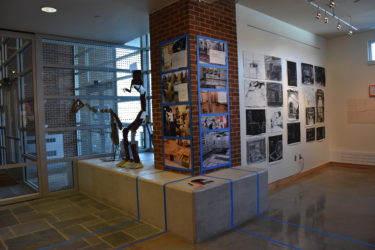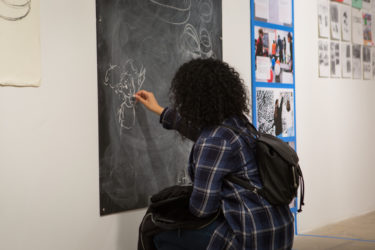Drawing Laboratory: The Pedagogy of Robert Reed
In this exhibition, there are demonstrations of teaching tools from Reed’s classroom, examples of student work, and photographs and documents from Reed’s archives. These materials are organized by the major types of investigations in his curricula: Structural Space, Installation, Collage, Cardboard Constructions, and Independent Investigation. Reed preferred the term ‘investigation’ rather than ‘assignment.’ Investigation evokes precise methodology and openness to outcome – Reed’s formula for creative practice.
“I was less interested in teaching drawing – because that’s easy. The difficult part is trying to get young people to think about themselves. I often think about an analogy of my teaching and that would be of a rubber band. And my job has to do with trying to stretch that rubber band to the point where people begin to realize what they are capable of. …There is wisdom when you find out what you can do and what you can’t do.” – Robert Reed, 2014
“Reed taught me that every project worth doing, is worth reinventing. There is always another way to look at it. Every investigation is an opportunity to create something better. To replace what is, with a vision of what could be.” Kris Ford Herrick, Skidmore ‘69
“He was obviously amazing at teaching people how to draw, but almost everything he did was teaching an underlying lesson that applied to virtues in life. Those kinds of experiences stay with me still.” – Danielle Friedman, Yale ‘15

